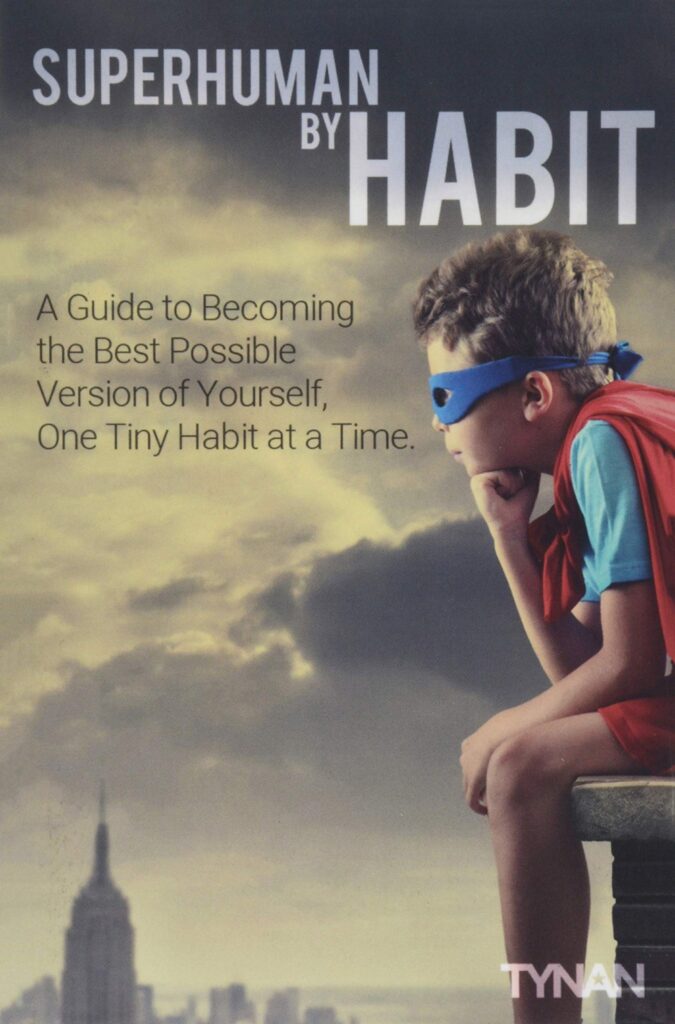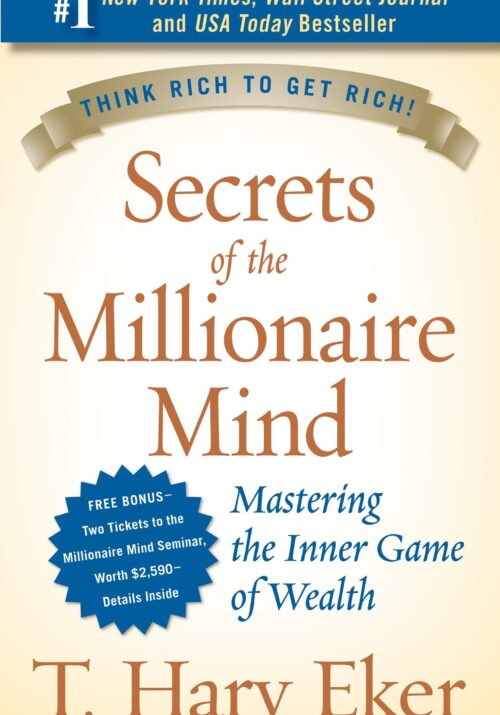SUPERHUMAN BY HABIT
 |
Don’t Spend Your Willpower, Invest ItThink Very Long TermAbsolutely never skip twiceTake pride in the process, not in the result Start easy and Often |
Big Idea 1 Don’t Spend Your Willpower, Invest It
The glorious benefit of a habit is that it converts something that requires a lot of willpower and focuses into something that becomes automatic and often outside of our conscious thought. We can consciously push ourselves to do only a certain number of things every day, which means that if we don’t have good habits, there is a ceiling to what we can accomplish, personally and professionally. This limit is not particularly high and is probably not high enough to achieve our goals and live the life we want.
By creating habits, we can move things from the “hard” category to the “easy” category, thus freeing up the willpower to tackle more of the hard things. We don’t give ourselves the ability to accomplish more by sacrificing health and sanity, which causes burnout, but rather by making some of those hard things easy.
Imagine charging your phone battery at night time in the morning the phone battery would be 100%, and throughout the day the phone battery would go down. And by night time the phone battery would be very low, like 25%. So for the phone battery to be 100%. We would have to charge the phone battery again.
Our bodies work the same way. We have limited WILLPOWER. For us to get more Willpower we need to go to sleep. We want to invest our WILLPOWER wisely to install HABIT that is in alignment with our Goal.
Big Idea 2 Think Very Long Term
A habit’s power is measured cumulatively. Smoking a single cigarette really isn’t very bad for your health, but smoking thousands of them per year adds up and turns smoking into one of the nastier habits you could have.
This principle works exactly the same for positive habits. Drinking green tea once won’t have any effect on your health, but drinking a few cups every day for years will actually make you a healthier person.
Short-Term thinking encourages thoughts like, “Let me push myself to the limit today and get as much done as possible”. This results in missing sleep, eating poorly, and a recovery period during which no significant amount of work can be completed.
This reminds me of James Clear Atomic Habit just Improving by 1% isn’t particularly notable sometimes it isn’t even noticeable – but it can be far more meaningful, especially in the long run. The difference a tiny improvement can make over time is astounding. Here’s how the math works out: if you can get 1% better each day for one year, you’ll end up 37% times better by the time you’re done. Conversely, if you get 1% worse each day for one year, you’ll decline nearly down to zero.
Focus on the process that’s in my control. The results are just a by-product.
Big Idea 3 Absolutely never skip twice
I was talking to a friend about daily habits that I had. He asked me what I did when I missed a day. I told him I don’t miss two days.
Missing two days of a habit is habit suicide. If missing one day reduces your chances of long-term success by a small amount like five percent, missing two days reduces it by forty percent or so. Three days missed and you may as well be starting over. At that point, you have lost your momentum and have made it far too easy to skip in the future.
When you first miss a habit, the next occurrence of it should become a top priority. You must execute on that habit at any level possible. Do it perfectly if you can, but do it terribly if that’s all you can handle.
Rather than say Ok I’m definitely going to do it tomorrow. Decide specifically when your going to do it, and come up with solutions to the problems in advance.
They researched college students. Two groups the first group ask to just finish the project and the second group asks to finish the project, but put a date, time, location, and how long you’re going to study. In the first group, only 20% finish the project and in the second group, 80% finish the project.
In the early stage of developing your habit. Somehow when we wake up. We can completely forget the habit that we want to develop.
On a 5 index card write down the habit you want to develop and one KEYWORD that gives you belief and energy. And place them on 5 different spots in your house that you visit the most to help remind you of the habit you working on.
Grand Cardone writes his Goal in the morning, afternoon, and night before he goes to sleep to constantly, remind himself.
Big Idea 4 Take pride in the process, not in the result
When evaluating your progress in building habits, you need something consistent to grade yourself against. Use your consistency in the process, not your actual results. So if you’re trying to lose weight, evaluate yourself based on how well you stick to your plan rather than the number on the scale, especially in the short term.
Focusing on results, especially short-term results, is an excellent way to add stress to your life. That could lead to you quitting the habit.
Pre-Win basically you already won it’s not about whether. I’m going to give a good presentation or not. It was the simple act of being in action that was the win, the process was what mattered showing up was a win. It wasn’t dependent on the results going on a certain way it was all about me showing up and taking action.
When we only focus on the result. We have that negative inner dialogue. We tell ourselves am I good enough or make excuses I’m too tired.
Big Idea 5 Start easy and Often
Say you’ve decided that you’re just too stressed out and prone to impulse and that the appropriate habit to develop is to meditate for thirty minutes every other day. That sounds smart and reasonable, but what if you seriously worry that when the excitement wears off and the stresses of life build up, you may not stick to meditating for the full amount of time on schedule?
Once you have any level of success, it’s easy to build upon it to strengthen the habit. So maybe instead of starting with thirty minutes every other day, you resolve to meditate for just one minute every single day. This sounds ridiculous, and probably won’t bring you any tangible benefits on its own, but once it becomes part of your life, doubling it to two minutes is also very easy. Then you increase to five minutes, then ten, then fifteen. Once you get there, you’ll be so used to meditating that cutting the frequency to every other day while doubling the duration to half an hour will be manageable.
We want to make it so easy that we can’t fail. Instead of 20 push up. How about we start with 1 push-up and make that a habit.
Celebrate your small wins each time I execute my habit of doing 1 push-up. I say to myself THAT’S LIKE ME. Each time I say that to myself THAT’S LIKE ME. I re-enforce my self-image that’s the best version of myself.
Big Idea 6 Triggering Habit + Situational Triggers
If we think about common negative habits, we easily accept that they have specific triggers. Stress triggers overeating or gambling, waking up might trigger smoking, or boredom might trigger wasting time online. Even though we’re conscious of these triggers, we don’t put much thought into triggering positive habits.
Whenever you begin a new habit, you should think about what its trigger is going to be and commit to that. Don’t say that you will drink tea every morning because you probably won’t. Say that every day, as soon as you wake up, you will drink tea. You can even write “First, drink tea” on a post-it note and put it on your alarm clock to ensure consistency as you build the trigger.
We want to set ourselves up for success. We become our environment.
Creating Wealth Trigger by placing 5 objects in the most visited areas helps remind me of the best version of myself. We might feel down or depressed or don’t feel good. The wealth trigger is to help remind ourselves of the best version of ourselves.
I place my Certification on my Wall. I call it the success wall. Sometimes I feel down or depressed. When I walk by and see that success wall. It helps remind me that I’ve come a long way. I did achieve a lot in my journey and have a lot of success.
I like to also put pictures of people who I admire on the wall. When I’m in having a challenge or going through a tough time. I ask myself if I was (fill in the blank ____) what would they do in this situation?
We need to constantly remind ourselves that we are better than we think we are.
Big Idea 7 Chaining Habit
You can also use habits as triggers for other habits, thus creating a reliable chain. For example, when I wake up, the very first thing I do is put a pot of water on the stove. Putting the water on is a trigger to brush my teeth, so I do that while it boils. Once it’s done, I make tea and sit down at my desk, That’s a trigger for me to read my email, check my calendar, and check various reports and stats that may affect how I plan my day.
I love to Chain my Habits the moment I get up from bed. I work out for 5min to wake up my body, clean up and wash my face, and then I would sit down at my desk and start reading self-help books.
When it’s on autopilot we don’t need to think about what to do next. We can start to free up our Will Power.
About the Author of SUPERHUMAN BY HABIT
Tynan
Tynan is a productivity expert, writer, and entrepreneur. He is well known for his work in personal development and self-improvement and has helped countless individuals achieve their goals and live more fulfilling lives through his writing and speaking.
About the Author of This Note
Michael Herr
 |
Lover of wisdom. I love to help people become the best version of themselves. Believe in others so that they believe in themselves so that together we can achieve our Goals and Dream. Learn more to become the best version of yourself at Michael Herr Arete.com |




